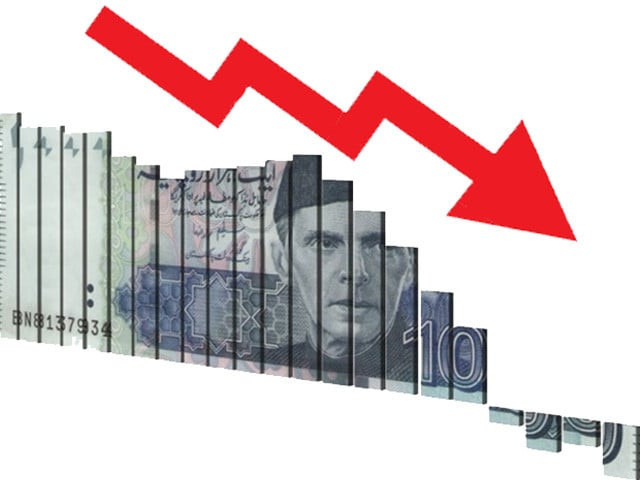No quick fix for economy in 2023
CPEC can help to revive economy through agri-development and industrialisation

Pakistan’s economic trajectory presents a dismal picture. Unfortunately, the country is addicted to experimentation and has been blindly attempting to emulate the liberal economic model.
Ever since independence, Pakistan has never tried to introduce a country-specific economic model.
Over the years, accountants, bankers and people with limited knowledge of how the economy actually functions have hijacked the system and are misguiding policymakers. They have facilitated the entrapment of Pakistan in a debt trap at the hands of western financial institutions, such as the International Monetary Fund (IMF) and the World Bank. As a result, Pakistan is facing the worst economic crisis of its history and is stuck in stagflation.
Thus, if Pakistan wants to come out of the current crisis and achieve its goal of sustainable development, the government will have to take some wise and concrete actions. First of all, we need to come out of the slogan and ‘big talk’ mentality. Second, we must realise that Pakistan cannot emulate any foreign economic model and thereby we need to devise our own indigenous policies on the basis of ground realities.
Third, the game of so-called ‘visions or dream-selling’ must stop. Fourth, Pakistan needs to concentrate on its strengths and available opportunities and should not chase pipedreams.
The analysis of ground realities and options indicate that Pakistan has some opportunities and strengths, which can provide relief in the short run and help to revive the economy in the long run. In terms of options, the China-Pakistan Economic Corridor (CPEC) is an excellent opportunity, which has all the ingredients for revival of the economy and sustainable development. Through agricultural development and industrialisation, CPEC can help to revive the economy and put the country on the track of sustainable development. In the short run, the construction of Special Economic Zones (SEZs) and infrastructure can help increase connectivity and boost economic activity.
In addition, cooperation in the sectors of science and technology, education, internet of things and skill development can help Pakistan enter into the fourth industrial revolution.
Unfortunately, the ruling elite is unable to comprehend the massive opportunity presented by CPEC. The political parties are engaged in discrediting one another. Ministries are engaged in a tug of war and each ministry claims to be the champion of CPEC, while doing little work on the ground.
In addition, the government has made the business environment so complicated that the business community seems helpless. The 18th Amendment has further complicated work on CPEC as provinces have been exercising their autonomy. Provinces are unable to understand the difference between the national interest and provincial autonomy. If Pakistan wants to make the CPEC project successful, these issues need to be resolved. Pakistan must create a strong centralised body with full decision-making authority that can implement its findings without political interference.
In terms of the country’s strength, agriculture remains at the top. Pakistan has been blessed with a diverse geography, which makes it home to diverse livestock, crops, food commodities and products.
Agriculture can help on multiple fronts including food security, poverty alleviation and provision of quality raw material for industries, especially the textile sector. It can also help to earn foreign exchange directly and indirectly. Textile and leather are good examples of indirect sources of foreign earnings.
For example, in our neighbourhood, the Middle East is a food-scarce region. They rely on imported food to meet local needs. According to the latest available data of food imports, Saudi Arabia imports 80% of its food used for domestic consumption. Likewise, 90% of the food requirement in Kuwait is met through imported food. UAE is another country, which cannot produce required food and imports 85% from the outside world.
Qatar is no different from these countries and it has to import 90% of its food to meet the needs of the local population. It is anticipated that food insecurity will increase in coming years due to population increase and the regional drive towards economic diversification.
Thus, these countries are looking for reliable partners, which can provide Halal food. The ongoing Russia-Ukraine crisis and the supply shocks resulting from Covid-19 have further highlighted the importance of a reliable supply chain. Pakistan can exploit this opportunity and can provide quality and fresh food products to countries in the Middle East. As a Muslim country, these countries will trust the Halal food criteria of Pakistan.
Crucially, Pakistan can ensure sustainability of food supply, even during the most difficult of times. For example, Pakistan provided meat to Kuwait during the Covid-19 pandemic.
In this context, Pakistan can adopt an innovative approach for the development of the agricultural sector. Pakistan can use CPEC to build a trilateral cooperation forum with Middle Eastern countries with the name of ‘China-Pakistan-Middle Agriculture and Food Forum’. It will be a win-win proposition, as every member will get what it wants. Pakistan can secure financial resources from the Middle East and technology from China.
In conclusion, Pakistan needs to concentrate on the above-mentioned opportunities and strengths. Otherwise, there is no way out of the current economic crisis.
THE WRITER IS A POLITICAL ECONOMIST AND A VISITING RESEARCH FELLOW AT HEBEI UNIVERSITY, CHINA



















COMMENTS
Comments are moderated and generally will be posted if they are on-topic and not abusive.
For more information, please see our Comments FAQ